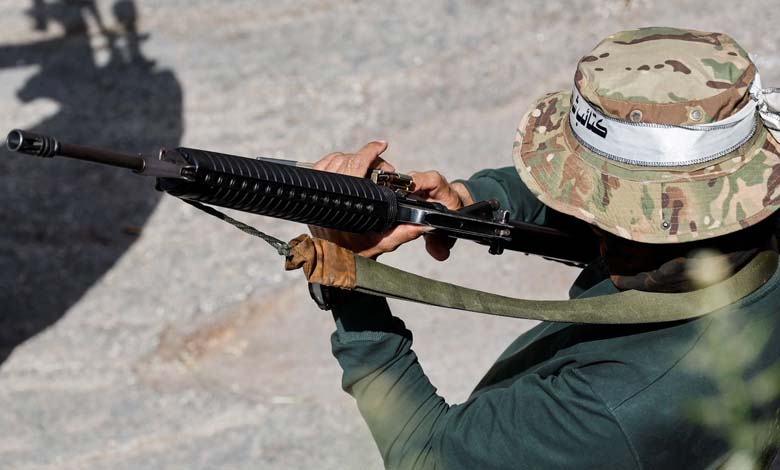Details of Iranian Arms Smuggling into the West Bank

Iran is overseeing a clandestine smuggling network across the Middle East, employing intelligence agents, militants, and criminal gangs to deliver weapons to the West Bank occupied by Israel, according to officials from the United States, Israel, and Iran. According to three Iranian officials, the goal is to foment unrest against Israel by flooding the region with as many weapons as possible.
Secret Operation
According to the New York Times, this secret operation raises concerns that Tehran seeks to turn the West Bank into the next hotspot in the long-standing proxy war between Israel and Iran. This conflict gained new importance this month, threatening a wider conflict in the Middle East, after Iran pledged to retaliate against an Israeli strike on an embassy compound that killed seven Iranian military commanders.
Officials say many of the smuggled weapons into the West Bank largely pass through two routes from Iran through Iraq, Syria, Lebanon, Jordan, and Israel.
The weapons traverse borders between multi-national networks, which can include members of organized crime gangs, armed extremists, soldiers, and intelligence agents. The primary entity in the operation are the Bedouin smugglers who transport weapons from Jordan into Israel.
Criminal Networks
The New York Times interviewed security officials and senior government figures familiar with Iran’s efforts to smuggle weapons into the West Bank, including three from Israel, three from Iran, and three from the United States.
Matthew Levitt, director of the Counterterrorism Program at the Washington Institute for Near East Policy, a research organization, said: “The Iranians wanted to flood the West Bank with weapons, and they were using criminal networks in Jordan, the West Bank, and Israel, most of whom were Bedouins, to transport and sell the products.”
Analysts say smuggling into the West Bank began about two years ago when Iran started using previously established routes for smuggling other contraband goods. It is unclear how many weapons arrived in the region at that time, but most were light arms, according to analysts.
The American newspaper confirmed that after the Hamas-led attack on October 7 against Israel from Gaza, Israeli security forces conducted a wide-ranging operation across the West Bank. The Israeli military describes these raids as part of its efforts to combat terrorism against Hamas and other armed factions, eliminating weapons and militants. Israeli forces killed hundreds of Palestinians, including those accused of attacking Israelis, according to the UN, in one of the deadliest periods in decades.
Human rights groups say many Palestinians are detained arbitrarily, especially those held in Israeli prisons without formal trial, and say it is unclear how many detainees have genuine links to militants.
Omar Shakir, director of the Israel-Palestine office at Human Rights Watch, said: “These arrests include many who are detained for unclear reasons. The Israeli government has a long record of arbitrary detention, arbitrary arrests, and detention of individuals for exercising their fundamental rights.”
For years, Iranian leaders have advocated arming Palestinian fighters in the occupied West Bank. Iran has long supplied the necessary weapons for attacking Israel to militants elsewhere in the region and to members of the resistance axis, including its main Palestinian allies in Gaza, Hamas and the Palestinian Islamic Jihad.
Iranian officials said Tehran did not target a specific group because of its generosity but instead chose to flood the region with rifles and ammunition.
Afshon Ostovar, associate professor of national security affairs at the Naval Postgraduate School and an expert on the Iranian military, said Iran focused on the West Bank because it understood that access to Gaza would be restricted in the foreseeable future.
Palestinian Accusations
Fatah, the Palestinian faction that controls the Palestinian Authority and much of the West Bank, accused Iran last week of attempting to exploit Palestinians for its own ends by sowing chaos in the region. Fatah said in a statement that it would not allow Iran to exploit our sacred cause and the blood of our people.
The Iranian mission to the United Nations did not comment on the smuggling operation but emphasized what it called the importance of allowing Palestinians to bear arms against Israel.
Analysts say the majority of smuggled weapons are light arms such as pistols and assault rifles, but Iran also traffics more advanced weapons, according to American, Israeli, and Iranian officials.
Israeli officials say these weapons include anti-tank missiles and mortar shells, which fly fast and at low altitude on the ground, posing a challenge to Israel in defending civilian and military targets against short-range fire.
Israeli, Iranian, and American officials said Iran, in collaboration with its armed allies and established criminal networks, uses two main routes to supply weapons to the West Bank.
Officials added that one of these routes involves militants supported by Iran and Iranian elements transporting weapons from Syria to Jordan.
Iranian officials added that from there, they are transported to the border to Bedouin smugglers. The Bedouins then transport the weapons to the border with Israel, where they are picked up by criminal gangs before being transferred to the West Bank.












